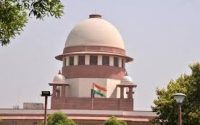$100 Website Offer
Get your personal website + domain for just $100.
Limited Time Offer!
Claim Your Website NowSC allows SFIO to reopen and recast IL&FS accounts for last five years
Source:-business-standard.com
The Supreme Court on Tuesday allowed the Serious Fraud Investigation Office (SFIO) to reopen and recast the accounts of Infrastructure Leasing & Financial Services (IL&FS) and two of its key subsidiaries of five years starting 2012-13 (FY13). The order came on a plea moved by the Ministry of Corporate Affairs (MCA), which sought to examine the books of IL&FS, IL&FS Financial Services (IFIN), and IL&FS Transportation Networks (ITNL) between FY13 and FY18.
The SFIO is a multi-disciplinary organisation under the MCA for detecting and prosecuting or recommending for prosecution white-collar crimes.
The recast of books, tax experts said, would help the SFIO find out exactly how they were inflated and by how much. It will also help determine the benefits accrued to the people involved in the process, which could aid in recovery. “At present, the SFIO has accessed IL&FS servers and other documents. This has helped put together a case against the former chairman and ex-directors. Once it gets access to all the accounts, it will be able to put together a stronger case and provide incriminating evidence against these people,” said a source.
The MCA had initially approached the Mumbai Bench of the National Company Law Tribunal (NCLT) in this regard. In its plea, the ministry had said that prima facie, the SFIO investigation had found that the affairs of the company and its subsidiaries were mismanaged during the given period. Though the NCLT had not expressed any opinion on the submissions of the MCA against the then auditors of the company, it allowed the reopening of the books of the three companies and asked the ministry to name the person or firm it wished to appoint as auditors.
“We further clarify that this order is without prejudice to the right of the auditors and all the parties present and will not affect the proceedings before the ICAI (Institute of Chartered Accountants of India) in any manner, which will be decided independently on its own merits,” the tribunal had said.
Following the NCLT order, Hari Sankaran, former vice-president and director of the company, had moved the NCLAT, alleging that the tribunal had passed the orders ex-parte and without hearing his arguments.
In its judgment on January 31, the NCLAT, while dismissing Sankaran’s plea, had said it found no merit in his plea that Section 230 of the Companies Act was a “draconian section”.
“Such submission cannot be accepted till any person challenges the provisions before the court of competent jurisdiction such as high courts and the Supreme Court,” the NCLAT had said.
Following the NCLAT judgment, Sankaran had approached the Supreme Court, which had initially stayed the NCLAT order on April 29. However, the MCA again moved the court, seeking vacation of its stay, which was granted on Tuesday. In its fresh plea, the MCA had said it needed to reopen and recast the accounts to get a fair picture of the financial position of these three firms.
Debt-laden IL&FS and its subsidiaries owe close of Rs 90,000 crore to their lenders. After the government’s takeover of the companies’ board last year, the new board has prepared a road map to pay off the debt. The board has classified IL&FS group companies into three categories — green, amber, and red — based on their financial health and ability to service debt obligations to secured and unsecured creditors.
Companies with no cash and not in a position to pay any creditor were classified as red, while those with enough to pay secured creditors but not unsecured ones were put under the amber category. The firms which have enough money to service all their debts to the secured as well as unsecured creditors were classified as green. So far, the companies under the green category have been allowed to service their debts.
What SFIO alleges
- Top IL&FS management formed a “coterie” with auditors
- Directors ran company as personal fiefdom
- Books of accounts fraudulently falsified
- Money illegally lent to IFIN group companies
- Statutory auditors did not discharge duties diligently



